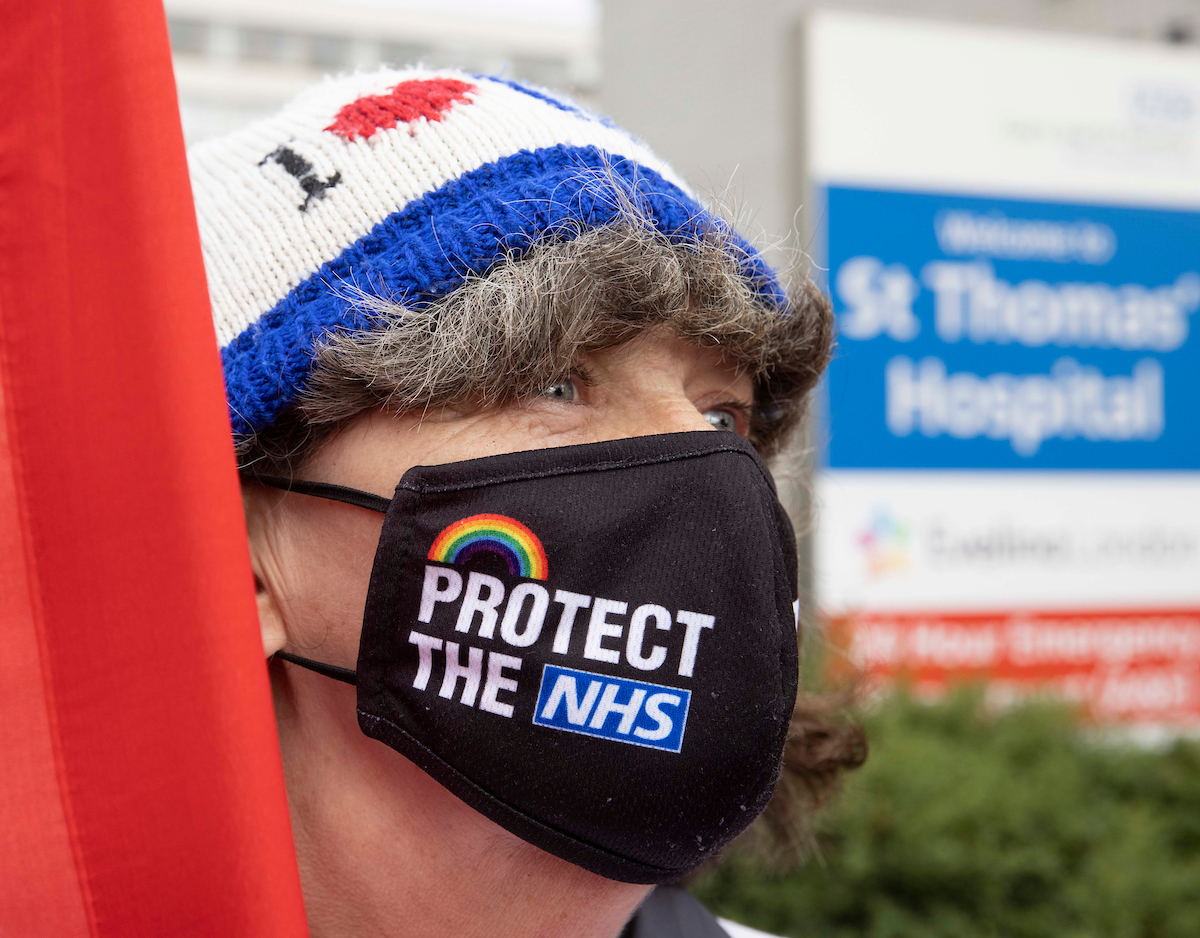â€At long last’
Ryan Fletcher, Wednesday, March 21st, 2018After eight years of crippling pay freezes, more than one million NHS staff are being offered increases of a least 6.5 per cent over three years – with the lowest paid full time staff receiving an extra £2,000 this year.
The ÂŁ4.2bn deal, agreed between ministers and union leaders after months of tense negotiations, will see the lowest paid half of NHS staff receive rises of between 9 and 29 per cent.
Unite is urging members to vote in favour of the deal, which will be paid for with fresh funding and be backdated to April if it is agreed by the summer.
Unite workplace rep Ian Evans, a support services manager at the Royal Sussex County Hospital in Brighton, said he was largely in favour of the offer.
â€Significantly better’
“Overall I’m very happy with the offer. It doesn’t make up for years of real terms pay cuts but it is a significantly better than the derisory offers we had before,” Evans said.
Evans was also pleased that the government had dropped demands that NHS staff forego a day’s annual leave in return for the pay rise and that new starters at all grades will receive higher salaries.
He said, “It’s right that hardworking NHS staff get the pay rise they deserve without having to lose a much needed day’s leave.
“Because the lower bands will see the biggest rises and new starters will receive increased salaries, people who wanted to work in the NHS but couldn’t afford to will now be encouraged to do so, which is very welcoming news.”
Chair of Unite’s national NHS committee and health service estate worker Paddy Bond said he felt it was “the best deal that can negotiated at this time”.
â€Right to vote for deal’
“I think it is right Unite is recommending members vote in favour of the deal. It can be used as a platform going to forward to press for more, but for now it is the best offer we’re going to get.”
The deal covers around 1.3m NHS workers across the UK, excluding senior managers, doctors and dentists, however the devolved governments will decide if the deal will be implemented outside England.
In Scotland, the lowest paid NHS staff have already been given pay rises, while in Northern Ireland staff are currently paid less than their English, Scottish and Welsh counterparts. This means there could divergence over the how the deal is implemented throughout the UK.
Northern Ireland regional officer with responsibility for the health sector, Kevin McAdam, said the deal must be used to restore pay parity for Northern Ireland NHS workers.
He said, “It is vital that this pay improvement be passed on fully to healthcare workers in Northern Ireland to ensure that our rates of pay do not fall further behind those in the rest of the UK.
“The fact that workers here are currently paid less than their equivalents in England, Scotland and Wales is inducing workers to take up positions outside the region and is resulting in severe pressures on local healthcare services and provision.”
â€Significant recognition’
Unite national officer for health Sarah Carpenter expressed relief that “at long last… there has been a significant recognition that this harsh pay regime imposed on hard working and dedicated NHS staff can no longer be sustained.”
While welcoming many aspects of the deal, especially its focus on low-paid workers who have suffered most under austerity, Carpenter said the union regards it “as the start, not the end, of the journey for true pay justice for NHS staff, which we will campaign for with vigour in the coming months and years”.
“This is something, we believe, the government should have done a long time ago – and they should do so now for other public sector workers who have endured a similar rigid pay policy,” Carpenter said.
She added, “Unite’s national health committee has discussed the deal and agreed to put it out for the members to decide, with the recommendation to accept. Our work is now to inform and consult our membership. They will be balloted during April and May, at the same time as other NHS unions.”
 Like
Like Follow
Follow


